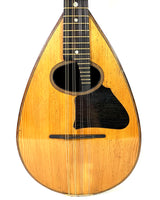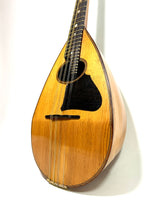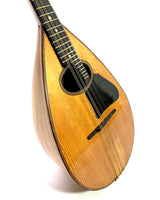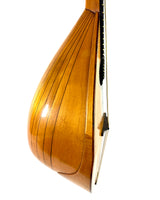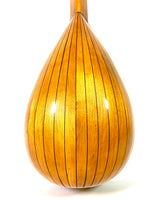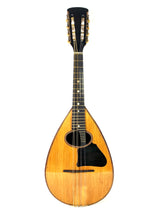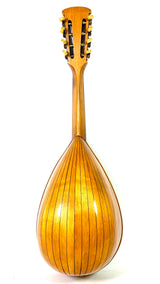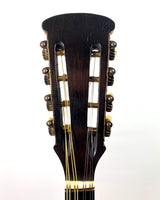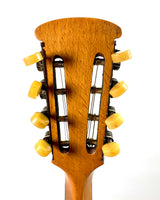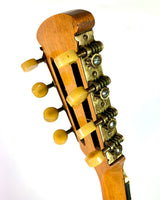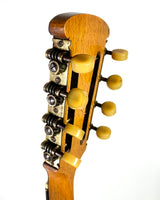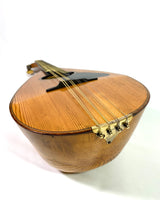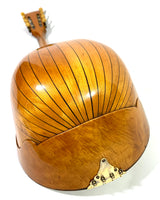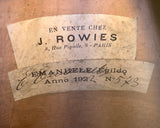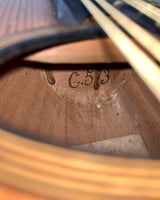Emanuele Egildo
1922 Emanuele Egildo Model C Concert Mandolin
Egildo Emanuele (1866-1955) was said to have been an Italian disciple of Luigi Embergher. Unlike the latter, he would have carried out his entire career as a luthier in France from the beginning of the 20th century, with the exception of his presumed apprenticeship in Rome. Throughout his production, from 1899 to the late 1940s, Emanuele is said to have shown extensive knowledge of Embergher's instruments as well as his theoretical research. Although he uses the model of his instruments, he would seek to develop a more concise range, combining quality and affordable prices. His hand, while different from Embergher's, is said to reflect a powerful personality that comes through in all of his instruments, including mandolins, bandurrias and guitars.
We also note that he was very familiar with the great Roman masters of the mandolin such as De Santis or Maldura, from whom he adopted the hollowed-out key system and its patented bridges.
Emanuele would thus have chosen to offer instruments offering more than Embergher at a lower price by making certain concessions on decorations and finishes, often less precise, but with a superior selection of wood for entry-level and intermediate instruments. It is for this reason that he would be nicknamed “the French Embergher”.
Here is a C model with 18 ribs in maple and a top in a very beautiful spruce with an ebony plate with a compensated bridge in ebony as well.
This model also features a hollowed out key patented by Maldura. An obvious sign of Emanuele's desire to seek the best sound for his mandolins, even for intermediate models like this one.
Technical characteristics :
- Top: Spruce
- Back: 18 rib maple
- Neck: Maple
- Fingerboard: Ebony
- Width at nut: 27 mm
- Radius: Roman
- Frets: 24 frets (+1 zero fret)
- Scale: 330 mm
- Profile: Romain
- Pickguard: Ebony
- Country of manufacture: France
- Year: 1922 (No. 573)
- Finish: Natural
- Decorations: Headstock veneered in ebony Maple-ebony bindings on the edge of the table and on the soundhole / White mother-of-pearl fingerboard markers
- Details: Label from J. Rowies (dealer) / Very good state of conservation / Delivered without case
Like all our instruments, this mandolin is fully restored and perfectly playable.
In addition, it has a particularly pleasant playing comfort.
This mandolin has a very good sound, with a nice tone, beautiful harmonics and superb projection.

